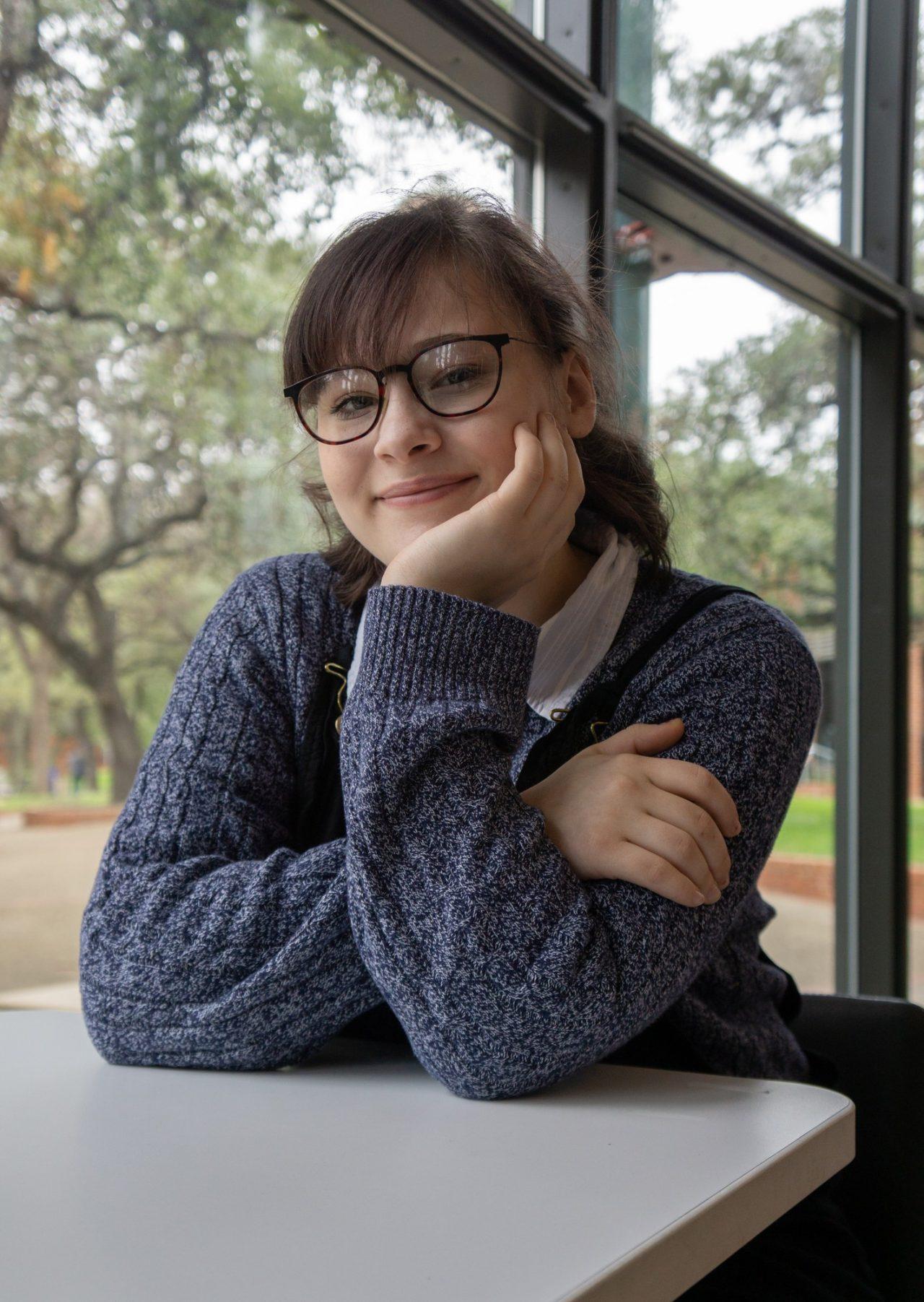Photo by Kate Nuelle
Senior theatre major Alex Oliver has been passionate about theatre for a long time and has been involved in Trinity’s theatrical productions for over three years. She has worked in many roles, from behind-the-scenes costume design to onstage to finally directing a show this semester.
What was the first thing that got you into theatre?
In seventh grade, I took a theatre class to get out of a choir class. By the end of the year, that was it. My life started revolving around the theatre in eighth grade. In high school, I did a lot of University Interscholastic League shows, which are 40 minutes, and you travel around and compete with them. So I did the same role for six months, which really never happens. I feel like I really grew as an actress just in doing that. And then when I got to college, I got to do a show with the director from the Royal Academy of Dramatic Arts, and then I loved doing Trinity University’s “Into the Woods.”
What is the show you’re directing now?
It’s called “Masses and Man,” and its subtitle is “the fragment of the social revolution.” It was originally written in German. It’s very much about what is the right way to change the world and to lead a revolution. It’s also written in this time of expressionism, which is a very unique art style in all forms of art. The core of it was really just in Germany over a span of 10 to 15 years. It’s a very specific art style. This play is so interesting to me because it has all of these old-timey references, but it’s so relevant today.
What drew you to this play specifically?
This summer I went to Berlin with our seven-week program. We started reading a lot of old German plays, and I already knew I kind of liked expressionism because I had read an American expressionist play, but I just completely fell in love with German expressionism. I saw a couple of expressionist films, and that was it for me. I really wanted to find a German expressionist play that was primarily led by a woman. It was 1915, so these writers weren’t often writing for women. That was my biggest frustration. There are almost no female expressionist playwrights. So I found this one, and the only character in this play that is named is the woman; her name is Sonya. She is willing to give up everything for her cause, and I thought it was just perfect and I just fell in love with the language and the message.
What is the most difficult part about directing this show?
I think it’s a mix of the language and the style because the play is technically written in verse. That leads to a lot of sort of funky sentence formations. So sometimes we just have to pause rehearsal just to figure out what we are saying. Also, there are some parts of the acting that I really want to bring in, but there are some parts that are so unrealistic that you no longer empathize with the characters. So [we are] really finding a balance between being true to the style and making it something that a modern audience would understand and empathize with.
What is different about this show compared to other shows you’ve done before?
The language is different. Even from Shakespeare, which is also in verse. Also, I’m using the space in a different way than most shows have. We have all three of our main acting spaces in our theater building and they are really unique. I think for the first time I feel like I’m using our Cafe Theatre to its full advantage. There are the weird doors that go out into the courtyard and the light that those let in and the way the space is arranged so that the seats are not permanent. I think that this show will be unique. I don’t know if that’s going to be good or bad yet, but I think it will be unique in the way it uses the space and I hope it encourages other directors to rethink the way that they use the space.
What has it been like working with such a complex script?
It’s been sort of complicated, because the style of the show very much illustrates each character is archetypal, meaning they represent someone in society. So I really had to sit down and think, “Why this scene? What do I want to get across here? What does this represent?” I had to do all that work ahead of time, and it’s the first full length of script I’ve ever directed. As a whole, it is a beast, but I am kind of surprised that a lot of it has come easily to this cast in ways I never imagined. I thought it was going to be so difficult to get through these pages and then they do it for the first time on stage. And I’m like, “Oh, that’s beautiful. It’s perfect. Oh my goodness. I’m so grateful.”
Oliver’s play, “Masses and Men,” opens Sunday, Feb. 14 at 8 p.m. in the Cafe Theater in the bottom floor of Steiren Theater. The run continues on Feb. 15 at 8 p.m. and closes on the Feb. 16 at 7 p.m.







